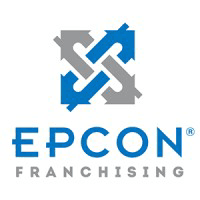Not sure if HomeSmart International is right for you?
Talk to a Franchise Advisor who can match you with your perfect franchise based on your goals, experience, and investment range.
Talk to an Expert
HomeSmart
How much does HomeSmart cost?
Initial Investment Range
$65,500 to $205,000
Franchise Fee
$20,000
HomeSmart International, LLC offers franchises for the operation of a business offering real estate brokerage services to both residential and commercial real property purchasers and sellers.
Enjoy our partial free risk analysis below
Unlock the full risk analysis to access 9 more categories covering 100+ risks.
HomeSmart April 18, 2025 FDD Risk Analysis
Free FDD Library AI Analysis Date: July 16, 2025
DISCLAIMER: Not Legal Advice - For Informational Purposes Only. Consult With Qualified Franchise Professionals.
Franchisor Stability Risks
Start HereDisclosure of Franchisor's Financial Instability
High Risk
Explanation
HomeSmart International, LLC (HomeSmart) explicitly flags its financial condition as a special risk. The parent company, HomeSmart Holdings, Inc., had a net loss and a stockholders' deficit in 2023. The 2023 audited financial statements included a "going concern" note, indicating substantial doubt about its ability to continue operations without additional funding. While 2024 showed improvement, this history of financial instability presents a significant risk to the franchisor's ability to support you.
Potential Mitigations
- A franchise accountant should meticulously analyze the parent company's audited financial statements, including all notes and historical trends, to assess its current stability.
- Discuss the implications of the past "going concern" opinion and the franchisor's reliance on its Founder for financial support with your business advisor.
- Your attorney should review the parent's Guaranty of Performance to understand its scope and limitations.
High Franchisee Turnover
High Risk
Explanation
HomeSmart explicitly identifies "Turnover Rate" as a special risk, stating that 37 outlets were terminated, not renewed, reacquired, or ceased operations in the last three years. Item 20 tables show a total of 24 terminations from 2022 to 2024. This notable level of turnover, directly flagged by the franchisor, could suggest underlying issues within the system, such as franchisee dissatisfaction, unprofitability, or other systemic challenges, posing a higher risk to your investment.
Potential Mitigations
- It is critical to contact a significant number of former franchisees listed in Exhibit C to understand their reasons for leaving the system.
- A business advisor can help you analyze the turnover data in Item 20 to calculate the churn rate and compare it to industry averages.
- Engaging an attorney to review the termination provisions in the Franchise Agreement is important to understand the conditions under which a franchise may end.
Rapid System Growth
Medium Risk
Explanation
The franchise system is large and has grown significantly, adding 26 net franchised outlets in 2024 and projecting another 24 openings for the next fiscal year. While growth can be positive, such a rapid expansion rate, combined with the franchisor's past financial instability, may risk stretching its support systems thin. This could potentially impact the quality and availability of training, operational support, and marketing assistance available to you as a new franchisee.
Potential Mitigations
- Your business advisor should help you question the franchisor about their specific plans to scale support infrastructure to match franchise growth.
- Speaking with both new and established franchisees can provide insight into the current quality and responsiveness of franchisor support.
- An accountant can analyze the franchisor's financials to assess if they are investing sufficiently in support systems to sustain this growth.
New/Unproven Franchise System
Low Risk
Explanation
This risk was not identified in the FDD package. An unproven franchise system can be risky due to the lack of a long-term track record, minimal brand recognition, and potentially underdeveloped support systems. Prospective franchisees in such systems face higher uncertainty regarding the business model's viability and the franchisor's ability to provide effective, long-term support. Careful due diligence on the management team's experience is crucial in these situations.
Potential Mitigations
- A business advisor can help you research the franchisor's history and the experience of its key executives in both the specific industry and in franchising.
- If available, speaking with the earliest franchisees in the system is essential to gauge the franchisor's performance and support evolution.
- Your accountant should carefully vet the financial stability and capitalization of any new or unproven franchisor.
Possible Fad Business
Low Risk
Explanation
This risk was not identified in the FDD package. A "fad" business is one based on a short-term trend rather than sustained consumer demand. Investing in such a franchise is risky because your long-term contractual obligations, including royalty payments, will continue even if public interest in the product or service declines sharply. This can lead to significant financial loss and business failure once the trend passes, leaving you with a devalued investment.
Potential Mitigations
- It is wise to conduct independent market research with a business advisor to assess the long-term consumer demand for the products or services offered.
- Your financial advisor can help you evaluate the business model's resilience to economic shifts and changing consumer tastes.
- Reviewing the franchisor's plans for innovation and adaptation in Item 11 can provide insight into their long-term vision.
Inexperienced Management
Low Risk
Explanation
This risk was not identified in the FDD package, as the management team appears to have extensive experience in the real estate industry. When franchisor management lacks experience in franchising or their specific industry, it can lead to significant problems. These may include weak support systems, poor strategic decisions, and an inability to effectively guide franchisees, increasing the risk of operational challenges and even failure for the franchisee.
Potential Mitigations
- A thorough review of the management team's biographies in Item 2 with a business advisor is crucial to assess their relevant experience.
- It is beneficial to ask current franchisees about their direct experiences with the management team's competence and support.
- Your attorney can help you ask targeted questions about the franchisor's strategies for overcoming any experience gaps.
Private Equity Ownership
Low Risk
Explanation
This risk was not identified in the FDD package, as the franchisor does not appear to be owned by a private equity firm. When a franchisor is PE-owned, there can be a focus on short-term returns, which may lead to increased fees, reduced franchisee support, or pressure to use specific vendors. This can sometimes prioritize investor profits over the long-term health of the franchise system and its individual franchisees.
Potential Mitigations
- A business advisor can help research a private equity firm's history with other franchise brands if applicable.
- Discussing any changes in the franchise system since a PE acquisition with current franchisees can provide valuable insight.
- Your attorney should carefully review assignment clauses in the Franchise Agreement to understand the implications of a future sale.
Non-Disclosure of Parent Company
Low Risk
Explanation
The FDD discloses that HomeSmart International, LLC is a subsidiary of HomeSmart Holdings, Inc. and that the parent company guarantees the franchisor's performance. The parent company's audited financial statements are provided. Therefore, the risk of non-disclosure is not present. Proper disclosure of a parent company is crucial for assessing the overall financial strength and stability backing the franchise system, especially if the franchisor entity itself is thinly capitalized.
Potential Mitigations
- Your accountant should review the financial statements of both the franchisor and any parent company to get a complete picture of financial health.
- It is important for your attorney to examine the terms of any parent guarantee to understand its scope and enforceability.
- A business advisor can help you understand the corporate structure and the potential influence of the parent company on the franchise.
Predecessor History Issues
Low Risk
Explanation
This risk was not identified in the FDD package. A franchisor's predecessor is a prior entity from which it acquired the business. Failing to disclose or providing incomplete information about a predecessor's history, including any past litigation, bankruptcy, or high franchisee turnover, can obscure significant historical problems with the system. This prevents you from making a fully informed decision about the stability and track record of the franchise you are buying into.
Potential Mitigations
- It is wise for your attorney to carefully review Item 1 for any mention of predecessors and cross-reference with Items 3, 4, and 20.
- A business advisor can assist in researching a predecessor's public records and history for any red flags.
- Speaking with long-term franchisees who may have operated under a predecessor can provide invaluable historical context.
Pattern of Litigation
Medium Risk
Explanation
Item 3 discloses several lawsuits against HomeSmart, including class action lawsuits alleging anticompetitive practices related to commission structures and a case involving vicarious liability claims. While some cases were settled or dismissed, the nature and number of these legal actions, particularly those involving industry-wide practices and franchisee conduct, represent a notable legal and reputational risk for the system that you should carefully consider.
Potential Mitigations
- Your attorney must carefully review the details of all litigation disclosed in Item 3 to understand the allegations and potential impact.
- It is important to discuss the franchisor's approach to litigation and risk management with your business advisor.
- An insurance broker should be consulted to ensure your proposed insurance coverage is adequate for the types of risks highlighted in the litigation.
Disclosure & Representation Risks
Example Risk: Franchisee Financial Obligations
Blue Risk
Explanation
This risk involves the financial obligations that a franchisee must meet, including initial fees, ongoing royalties, and other required payments. Understanding these obligations is crucial for long-term success.
Potential Mitigations
- Carefully review the Franchise Disclosure Document (FDD) and consult with a franchise attorney to fully understand all financial commitments before signing.
- Conduct regular risk assessments
- Implement monitoring and reporting systems
Unlock Full Risk Analysis
Purchase the complete risk review to see all 102 risks across all 10 categories.
Financial & Fee Risks
Example Risk: Franchisee Financial Obligations
Blue Risk
Explanation
This risk involves the financial obligations that a franchisee must meet, including initial fees, ongoing royalties, and other required payments. Understanding these obligations is crucial for long-term success.
Potential Mitigations
- Carefully review the Franchise Disclosure Document (FDD) and consult with a franchise attorney to fully understand all financial commitments before signing.
- Conduct regular risk assessments
- Implement monitoring and reporting systems
Unlock Full Risk Analysis
Purchase the complete risk review to see all 102 risks across all 10 categories.
Legal & Contract Risks
Example Risk: Franchisee Financial Obligations
Blue Risk
Explanation
This risk involves the financial obligations that a franchisee must meet, including initial fees, ongoing royalties, and other required payments. Understanding these obligations is crucial for long-term success.
Potential Mitigations
- Carefully review the Franchise Disclosure Document (FDD) and consult with a franchise attorney to fully understand all financial commitments before signing.
- Conduct regular risk assessments
- Implement monitoring and reporting systems
Unlock Full Risk Analysis
Purchase the complete risk review to see all 102 risks across all 10 categories.
Territory & Competition Risks
Example Risk: Franchisee Financial Obligations
Blue Risk
Explanation
This risk involves the financial obligations that a franchisee must meet, including initial fees, ongoing royalties, and other required payments. Understanding these obligations is crucial for long-term success.
Potential Mitigations
- Carefully review the Franchise Disclosure Document (FDD) and consult with a franchise attorney to fully understand all financial commitments before signing.
- Conduct regular risk assessments
- Implement monitoring and reporting systems
Unlock Full Risk Analysis
Purchase the complete risk review to see all 102 risks across all 10 categories.
Regulatory & Compliance Risks
Example Risk: Franchisee Financial Obligations
Blue Risk
Explanation
This risk involves the financial obligations that a franchisee must meet, including initial fees, ongoing royalties, and other required payments. Understanding these obligations is crucial for long-term success.
Potential Mitigations
- Carefully review the Franchise Disclosure Document (FDD) and consult with a franchise attorney to fully understand all financial commitments before signing.
- Conduct regular risk assessments
- Implement monitoring and reporting systems
Unlock Full Risk Analysis
Purchase the complete risk review to see all 102 risks across all 10 categories.
Franchisor Support Risks
Example Risk: Franchisee Financial Obligations
Blue Risk
Explanation
This risk involves the financial obligations that a franchisee must meet, including initial fees, ongoing royalties, and other required payments. Understanding these obligations is crucial for long-term success.
Potential Mitigations
- Carefully review the Franchise Disclosure Document (FDD) and consult with a franchise attorney to fully understand all financial commitments before signing.
- Conduct regular risk assessments
- Implement monitoring and reporting systems
Unlock Full Risk Analysis
Purchase the complete risk review to see all 102 risks across all 10 categories.
Operational Control Risks
Example Risk: Franchisee Financial Obligations
Blue Risk
Explanation
This risk involves the financial obligations that a franchisee must meet, including initial fees, ongoing royalties, and other required payments. Understanding these obligations is crucial for long-term success.
Potential Mitigations
- Carefully review the Franchise Disclosure Document (FDD) and consult with a franchise attorney to fully understand all financial commitments before signing.
- Conduct regular risk assessments
- Implement monitoring and reporting systems
Unlock Full Risk Analysis
Purchase the complete risk review to see all 102 risks across all 10 categories.
Term & Exit Risks
Example Risk: Franchisee Financial Obligations
Blue Risk
Explanation
This risk involves the financial obligations that a franchisee must meet, including initial fees, ongoing royalties, and other required payments. Understanding these obligations is crucial for long-term success.
Potential Mitigations
- Carefully review the Franchise Disclosure Document (FDD) and consult with a franchise attorney to fully understand all financial commitments before signing.
- Conduct regular risk assessments
- Implement monitoring and reporting systems
Unlock Full Risk Analysis
Purchase the complete risk review to see all 102 risks across all 10 categories.
Miscellaneous Risks
Example Risk: Franchisee Financial Obligations
Blue Risk
Explanation
This risk involves the financial obligations that a franchisee must meet, including initial fees, ongoing royalties, and other required payments. Understanding these obligations is crucial for long-term success.
Potential Mitigations
- Carefully review the Franchise Disclosure Document (FDD) and consult with a franchise attorney to fully understand all financial commitments before signing.
- Conduct regular risk assessments
- Implement monitoring and reporting systems
Unlock Full Risk Analysis
Purchase the complete risk review to see all 102 risks across all 10 categories.











